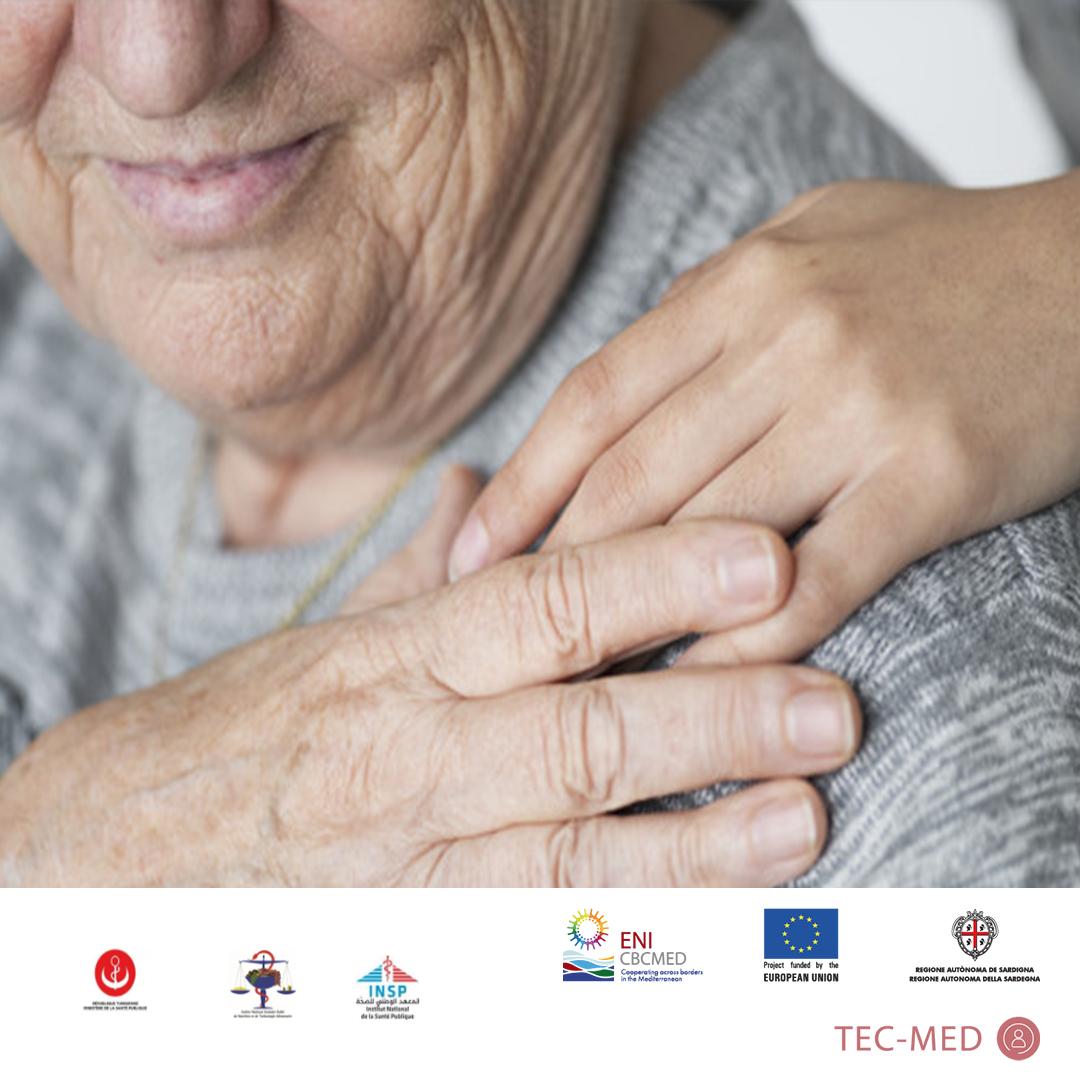Tunisia: TEC-MED project fine-tunes capacity building´s needs to adapt care model for elderly people

Skills development are important components in preparing providers of social and health services for the elderly in general. This is an important process for providing the various stakeholders around the target elderly with advice in terms of health promotion, prevention, and care for the elderly.
The main objective of a skills development plan would be to give target communities as well as key actors the means to define, assess and act on the issues they deem relevant. This would allow the implementation of sustainable health and social programs within the target community.
In this context and precisely within the framework of the model that the Institute of Nutrition of Tunis (INNTA) in partnership with the National Institute of Public Health (INSP) and their foreign partners in cross-border cooperation and to support the model of care offered by TEC-MED, planned several actions around needs expressed by stakeholders (city council, public administration, care companies, etc.).
Professor Jalila El Ati, the project manager, highlights the formulation and application of a capacity building plan for key agents involved in the implementation of the TEC-MED model. This plan aims to train six agents per country (Lebanon, Egypt, Greece, Italy, Spain and Tunisia) who will oversee supporting 4,700 targeted people between the elderly and health and social professionals. Indeed, a workshop was organized by the Tunisian managers of the TEC-MED project, on February the 2nd, 2021, with the collaboration of Tunisian stakeholders and aimed to identify and finalize the capacity building needs to be applied in the TEC-MED model.
Train the family, housing alternative and digital social intervention: key needs expressed by Tunisian stakeholders
During this workshop, the stakeholders identified three essential needs necessary to support the TEC-MED model's establishment and target the final population either directly or indirectly. The needs identified are related to the proposed model's six key dimensions: the elderly, health and social service providers, the health and social environment, governance, financing, and technology.
Firstly, training elderly people and their family members, and developing elderly self-care skills by social, cultural and technological support are very important to improve their lives within the framework of the new care model. In the same way, elderly people and their family members need to strengthen the skills of health and social assistance providers with a focus on social care through the organization of adequate training programs.
Secondly, it is necessary to enhance the quality of health and social service delivery based on an integrated social and health care that responds to person and family’s needs to provide a supportive social and physical environment with enough resources, material and human, focusing on housing alternatives. From a political perspective, it is necessary to develop awareness about the importance of the quality of governance that uses a perspective based on active and positive ageing, long-term care and that approaches the gender and social determinants of health for establishing the systems of care to elderly dependent people and/or at risk of exclusion. Raising awareness of the importance of financing for developing and socio-ethical and transcultural care, also focus on the importance of public and universal funding, the quality and the transparency, and investing in enough material and human resources.
Finally, the promotion of digital social intervention to support population care, training, recording of the information, the alert notifications, communication, and coordination, and for evaluating the quality of the care provided, and the policies is the last pillar to develop the new care model.
Care model against COVID-19 pandemic
An evaluation system is necessary to ensure the implementation of the identified plan and the various actions. A list of key performance indicators will, therefore, be identified to monitor the objectives of the action plans and the levels acquired by training at different levels.
This model is an ambitious challenge that the Tunis nutrition institute and its partners are trying to succeed in launching a solid starting point towards quality care for the elderly. A need for reform seems to be necessary and confirmed after a hard Covid-19 year for this targeted population because the skills development plan is the main pillar in building a solid model of care for dependent elderly people and or at risk of exclusion.







